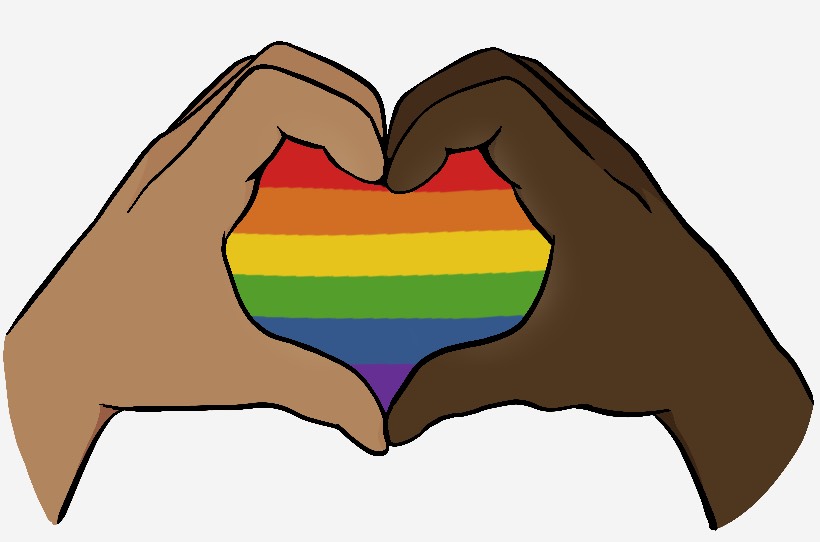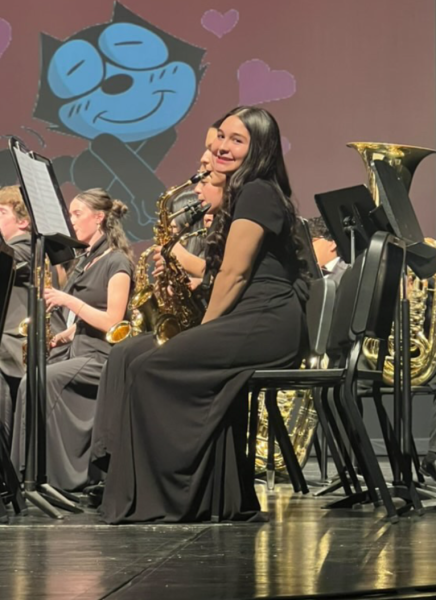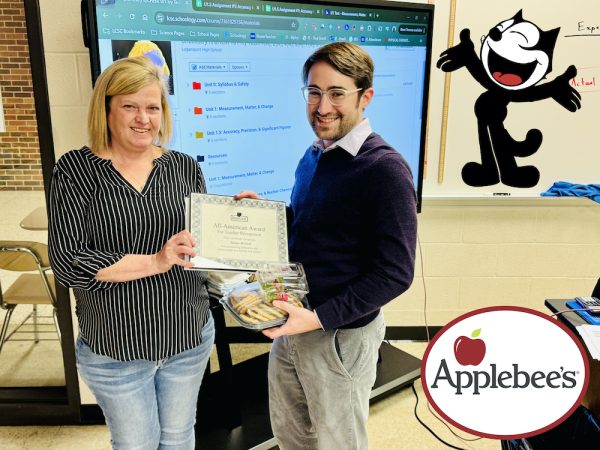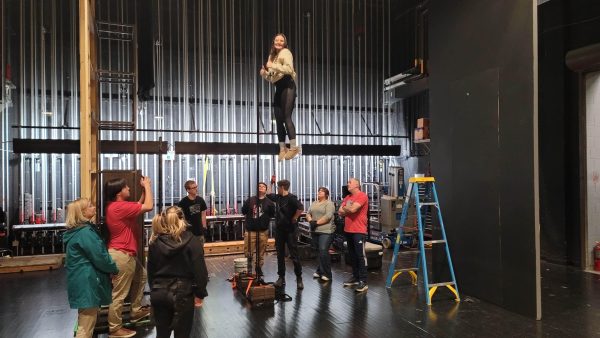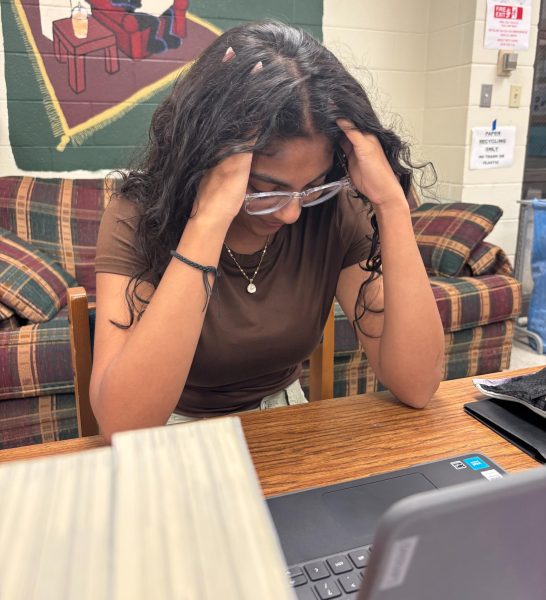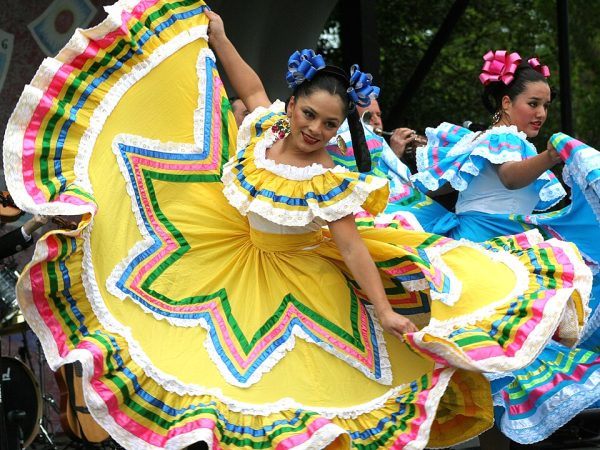Growing up LGBTQ+
The LGBTQ+ community simply existing causes others to send hate their way. It’s important that the community stands together and continues to love who they love.
Growing up LGBTQ+ can be a challenging and confusing experience for many individuals. The process of coming to terms with one’s own sexual orientation and/or gender identity can be difficult, particularly in a society that often stigmatizes and discriminates against those who identify as LGBTQ+.
“Growing up on the internet, there are always people who will discriminate against you for any reason they can find,” Toby Wright said. “I remember crying when I was only 11 years old because someone online had called me a hateful slur. It was an older man who had asked me out, but I declined by telling him I was gay. At the time I didn’t really understand it; I was so young that I didn’t realize that it wasn’t my fault. I could have been anyone and he would have hated me purely because I was LGBTQ.”
For many LGBTQ+ youths, adolescence can be a particularly isolating and painful time. The pressure to conform to heterosexual and cisgender norms can be intense, leaving many feeling like they do not fit in. This can lead to feelings of loneliness, depression, and anxiety, and can be compounded by bullying or harassment from peers or adults.
It is not uncommon for LGBTQ+ youth to struggle with self-doubt and self-hatred as they navigate their identity. Societal messages that signal that being LGBTQ+ is wrong or abnormal can take a toll on mental and emotional well-being.
“I tried to fit myself into labels and little boxes for years; they just made me stressed because nothing seemed to describe how I felt,” Mara Rieger said. “Eventually, I threw all of that down the drain. ‘gay’ and ‘trans’ are just words. I’m a person and that’s all that matters.”
Wright adds on by stating their sympathy for those who have faced discrimination.
“Having people hate you is never fun, especially when it’s something you can’t control,” Wright said. “I have a lot of sympathy for people who are experiencing discrimination because I have dealt with it to an extent. It has made me mature quicker because I felt pressure to completely figure out who I was at a young age.”
In addition to these challenges, there are often logistical hurdles to overcome as well. LGBTQ+ youth may not have access to supportive resources like affirming adults or appropriate healthcare. They may also face challenges in finding safe and accepting spaces to socialize or seek community.
“Sadly, I wasn’t allowed to come out on my own terms,” Wright said. “Before I had completely figured myself out, my parents had taken my phone at the time and gone through it. It really was a gut-wrenching feeling. As I said I had been raised to be accepting of everyone, but something caused me to feel almost shameful and embarrassed about it.”
Sydney Vo adds to this.
“You shouldn’t be obligated to come out to others, it could possibly put you in a dangerous situation,” said Vo. “You should only come out when you’re sure it’s safe and if you’re comfortable with that person.”
Though growing up LGBTQ+ can also be an empowering and affirming experience. Finding community with fellow LGBTQ+ individuals and allies can be a key part of the healing process. Finding role models and examples of LGBTQ+ excellence in the media and other spaces can also help to reinforce a positive self-image.
For those who are able to come out and live openly as LGBTQ+ individuals, there can be a sense of liberation and pride that comes with owning one’s authentic identity. There is a sense of joy in finding and celebrating one’s own community and sense of belonging.
“Don’t change who you are for the likes of others,” Wright said. “There will always be someone who will accept you for who you are no matter what, and you should find that.”
It is important to remember that the LGBTQ+ experience is diverse and multifaceted. Each individual’s journey is unique, and there is no one “right” way to be LGBTQ+. Despite the challenges that can come with growing up LGBTQ+, there is also great resilience and strength that comes from living authentically and with purpose.
“Love yourself,” Rieger said. “You were born to be the person you are at this very second. You can’t change who you are; you can choose to embrace it.”
Your donation will support the student journalists of Logansport High School. Your contribution will allow us to purchase equipment and cover our annual website hosting costs.
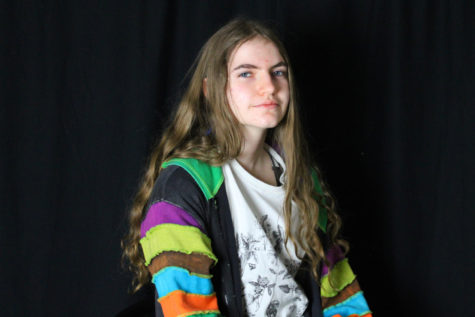
Freshman Maddison Sell (all pronouns) is a reporter and a member of the class of 2026. She joined Magpie their freshman year (2022-23). One of his favorite...

